BDD and Relationships: How Does Body Dysmorphia Affect Relationships?

Body Dysmorphic Disorder (BDD) is a mental health condition characterized by an obsessive focus on perceived flaws in physical appearance. It’s a silent struggle faced by many, affecting approximately 1-2% of the population. But what happens when BDD collides with the complex web of human relationships? Relationships are the cornerstone of our well-being in our interconnected world, providing love, support, and understanding.
This article dives into the often-overlooked impact of BDD on these vital connections and the link between BDD and relationships, exploring how it can strain bonds and alter the course of our closest relationships.
Understanding Body Dysmorphic Disorder (BDD)
Body Dysmorphic Disorder (BDD) is like a relentless mirror that distorts self-perception. People with BDD become excessively preoccupied with perceived flaws in their appearance, often minor or even imagined. These obsessions consume their thoughts, leading to severe distress. To be clinically diagnosed with BDD, specific criteria must be met, such as excessive time spent on these concerns and significant interference in daily life.
Common Symptoms
BDD doesn’t discriminate; it affects people of all genders and backgrounds. Common symptoms include fixations on facial features, skin imperfections, or body size and shape. Sufferers may engage in repetitive behaviors like checking mirrors, seeking reassurance, or even resorting to extensive grooming rituals. These actions temporarily relieve anxiety but perpetuate the cycle of distress.
Prevalence of BDD
BDD isn’t as rare as you might think. Research indicates that around 2% of the population battles this condition. That’s millions of people worldwide, including those close to you, who may be silently struggling with their self-image.
The Psychological and Emotional Toll of BDD
The emotional burden of BDD is immense. Individuals with BDD often experience feelings of shame, anxiety, and depression. Their self-esteem takes a hit, affecting their overall quality of life. This emotional turmoil can spill over into their relationships, altering the dynamics in unexpected ways.
Understanding these fundamental aspects of BDD is crucial as we dive deeper into how it impacts relationships.
The Significance Of Relationships
Healthy relationships are the cornerstone of our emotional well-being. They are built on mutual respect, trust, communication, and support. In such relationships, both individuals feel valued, heard, and safe. The quality of our relationships significantly impacts our overall happiness and mental health.
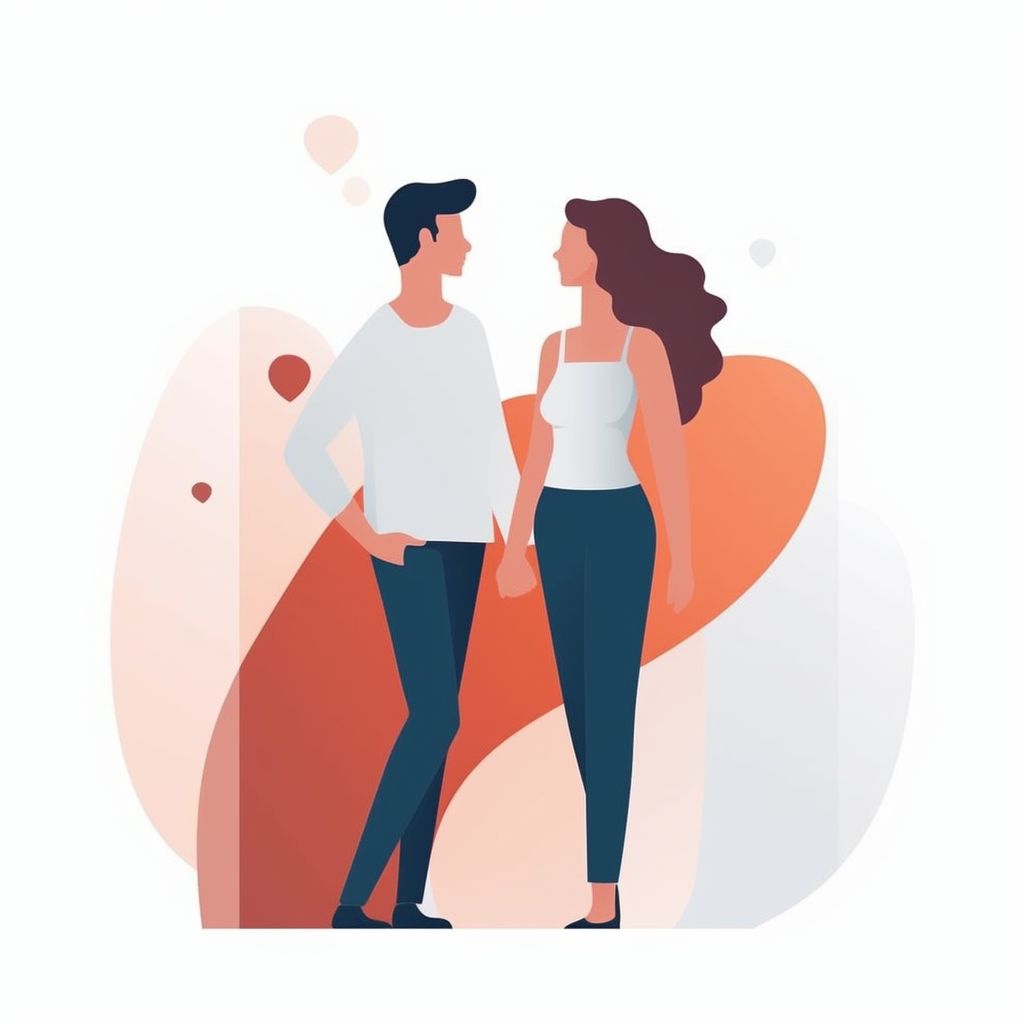
BDD casts a shadow over various types of relationships. In romantic relationships, it can lead to strained intimacy, jealousy, and insecurity. Familial bonds may suffer as individuals withdraw or become irritable due to BDD-related distress. Even friendships can be affected as social gatherings and interactions become sources of anxiety.
Healthy self-esteem and a positive body image are vital in nurturing relationships. When BDD takes hold, it erodes self-esteem, causing individuals to doubt their worth and attractiveness. This can lead to seeking constant validation or withdrawing from relationships altogether, as individuals believe they are unworthy.
Understanding the significance of healthy relationships and their vulnerability to the impact of BDD is essential as we explore this topic further.
How Does Body Dysmorphia Affect Relationships?
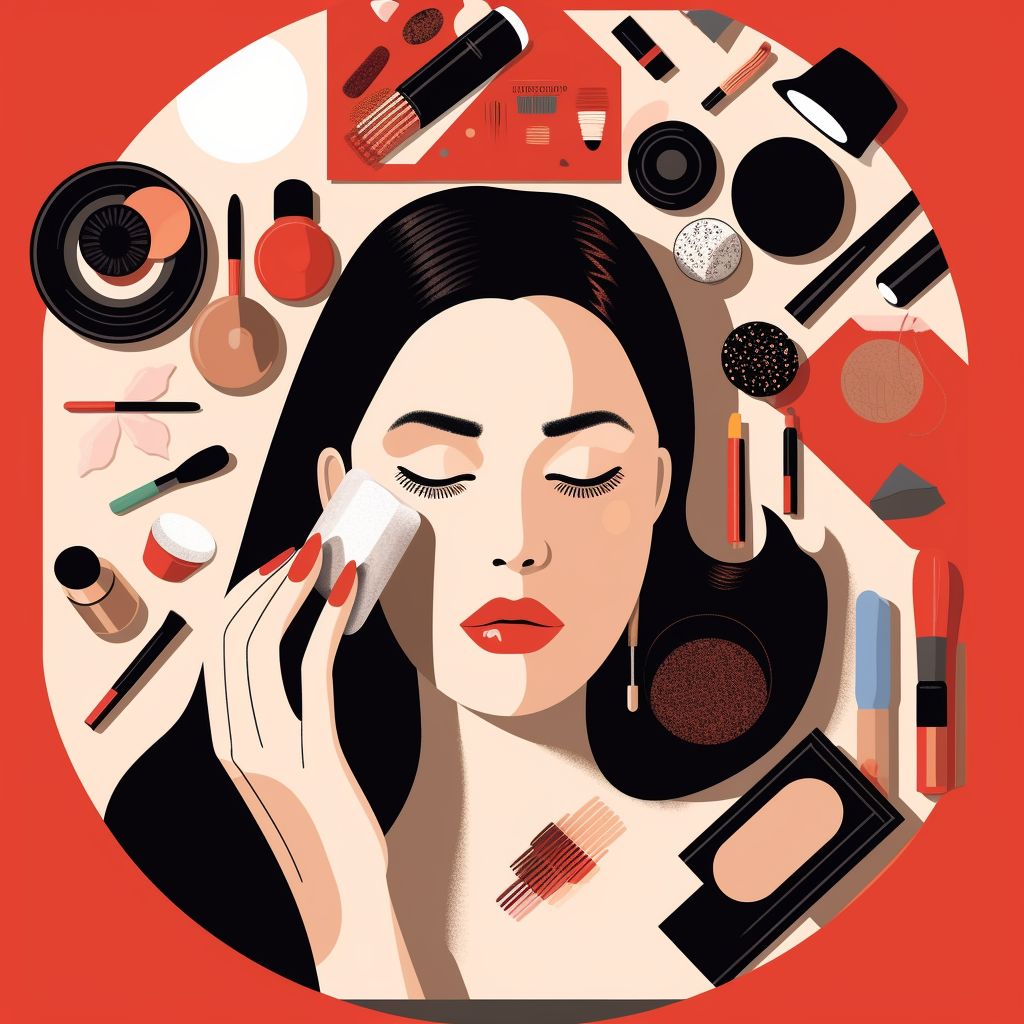
Living with Body Dysmorphic Disorder (BDD) can introduce a host of challenges to various types of relationships:
Communication Difficulties
Effective communication is the bedrock of any healthy relationship, but BDD can hinder it. Individuals with BDD may struggle to express their feelings and thoughts, fearing judgment or rejection. They may find it challenging to articulate their insecurities or explain their behaviors to their loved ones.
Trust Issues
BDD’s relentless self-doubt can extend to relationships, leading to trust issues. Partners, family members, and friends may wonder if their reassurances are ever enough or if they’re being honest. Trust, once eroded, can be difficult to rebuild.
Impact on Intimacy and Sexuality
BDD can cast a long shadow over intimacy and sexuality. Feelings of shame or inadequacy can make individuals with BDD withdraw from physical closeness. This can strain romantic relationships, causing frustration and confusion for both partners.
Statistics reveal the prevalence of relationship difficulties among individuals with BDD. It’s estimated that up to 60% of individuals with BDD experience a significant impairment in their social and interpersonal relationships. These statistics highlight the urgency of addressing the relational aspects of BDD.
| Suggestion: Bigorexia: When the Pursuit of Muscles Goes Too Far
Dating with Body Dysmorphic Disorder (BDD)
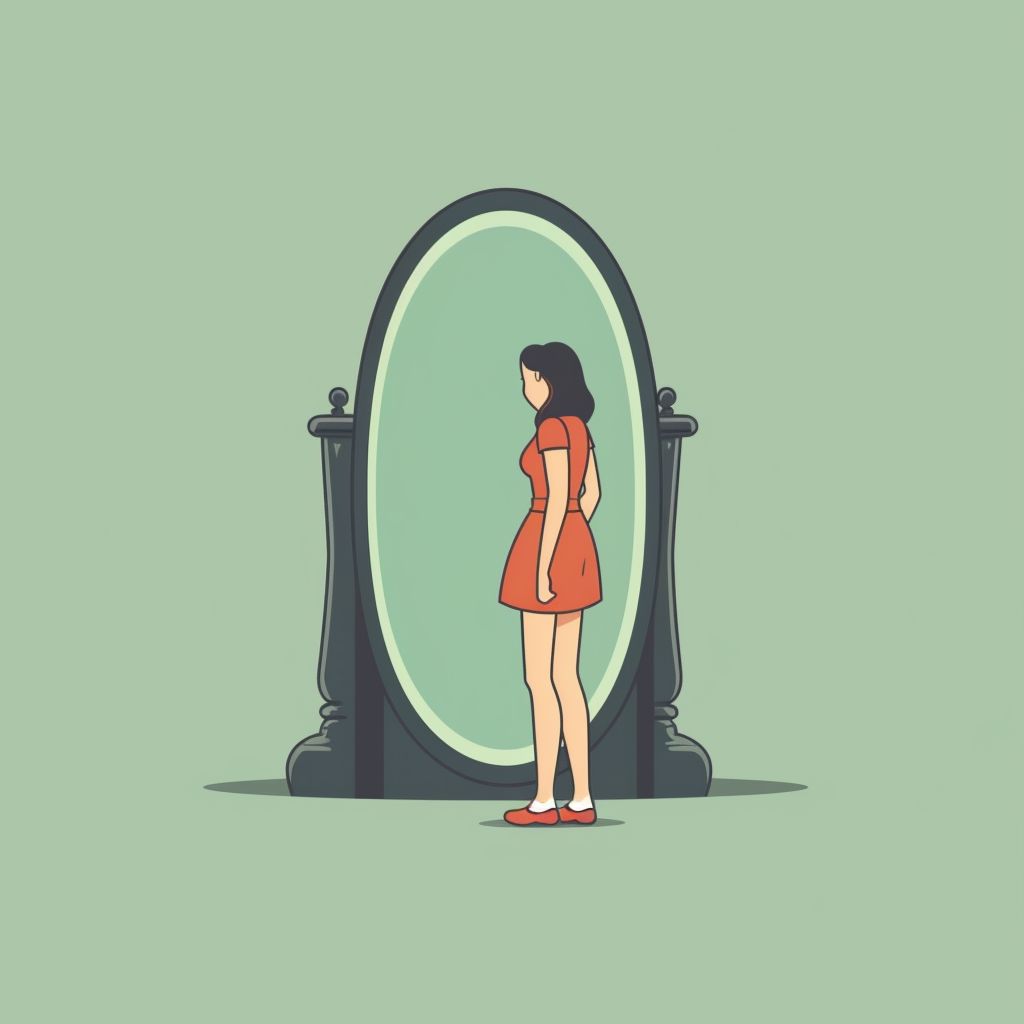
Dating can be both thrilling and challenging, but when you have Body Dysmorphic Disorder (BDD), it can introduce unique complexities to the mix. Dating with BDD requires self-awareness, communication, and self-compassion. Here’s how to approach dating while managing BDD:
Self-Acceptance Comes First
Before embarking on any relationship journey, remember that self-acceptance is paramount. It’s essential to work on self-love and acceptance to build a foundation for healthy relationships.
Communicate Openly
When you feel comfortable, share your experience with BDD with your potential partner. This open communication can foster understanding and empathy. They can provide support if they are aware of your challenges.
Choose the Right Time
While honesty is crucial, it’s also important to choose the right time to discuss your BDD. Wait until you feel comfortable and trust has developed in the relationship.
Set Realistic Expectations
Recognize that no one is perfect, including yourself. Avoid idealizing your partner’s appearance or feeling pressure to meet certain beauty standards. Authenticity is more attractive than perfection.
Focus on Shared Interests
When dating, emphasize shared interests, values, and experiences rather than appearance. Building connections based on common interests can strengthen the emotional bond.
Self-Care is Key
Prioritize self-care routines that help manage BDD symptoms. Engage in activities that boost your self-esteem and well-being, such as exercise, meditation, or creative pursuits.
Seek Professional Help
If BDD significantly affects your daily life and relationships, consider seeking professional help. Cognitive-behavioral therapy (CBT) is a proven approach to managing BDD.
Challenge Negative Thoughts
Learn to identify and challenge negative thoughts related to your appearance. A therapist can help you develop strategies for this.
Embrace Support
Lean on friends, family, or support groups. Sharing your experiences with others who understand can be incredibly comforting.
Be Kind to Yourself
Remember that dating with BDD can be challenging, but you deserve love and acceptance just like anyone else. Be patient with yourself and acknowledge your progress.
Dating Someone with Body Dysmorphic Disorder (BDD)
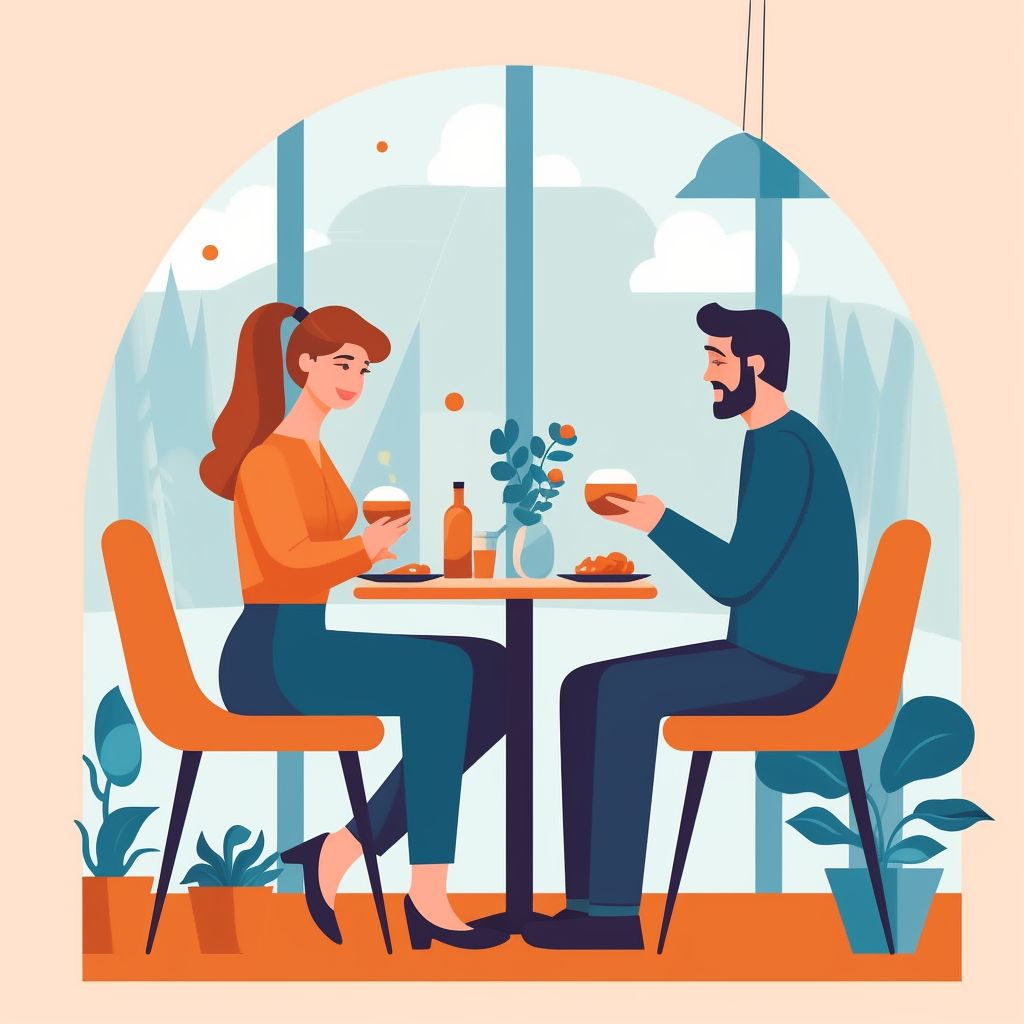
Dating can be a beautiful journey filled with connection, growth, and shared experiences. However, when you’re dating someone with Body Dysmorphic Disorder (BDD), there can be unique challenges to navigate. BDD is a mental health condition where individuals become intensely preoccupied with perceived flaws in their physical appearance, even if these concerns are minor or imagined. It’s important to approach such relationships with empathy, understanding, and patience. Here’s how to make it work:
Educate Yourself
Start by learning about BDD. Understand the symptoms, common triggers, and the emotional toll it takes on your partner. The more you know, the better equipped you’ll be to provide support.
Be a Good Listener
Your partner may need to talk about their BDD-related concerns or anxieties. Create a safe and non-judgmental space for them to express their feelings. Active listening and empathy can go a long way.
Avoid Making Assumptions
Don’t assume you know what your partner is going through or how they feel about their appearance. Everyone’s experience with BDD is unique. Ask open-ended questions and encourage them to share their perspective.
Offer Reassurance, But Be Cautious
Reassurance is important, but be mindful not to enable BDD-related behaviors. Encourage your partner to seek professional help if necessary. Remember, you can’t “fix” their BDD, but you can be a source of support.
Practice Patience
BDD can lead to rituals, such as excessive grooming or checking mirrors. Be patient with your partner’s rituals, but gently encourage them to reduce these behaviors with the help of a therapist.
Encourage Professional Help
Suggest therapy or counseling if your partner hasn’t sought help already. Cognitive-behavioral therapy (CBT) has been shown to be effective in treating BDD.
Focus on the Person, Not Their Appearance
Remind your partner that their worth is not defined by their physical appearance. Compliment their non-physical qualities and achievements to boost their self-esteem.
Set Boundaries
Ensure that you also prioritize your own well-being. It’s okay to set boundaries if certain behaviors or conversations become too emotionally taxing for you.
Seek Support for Yourself
Supporting a partner with BDD can be challenging. Don’t hesitate to seek your support system or consider couples’ therapy to navigate the relationship’s unique dynamics.
Celebrate Small Wins
Celebrate your partner’s progress, no matter how small. Overcoming BDD is a gradual process, and every step forward is an achievement worth acknowledging.
Dating someone with body dysmorphia can be demanding, but with love, patience, and understanding, it’s possible to build a strong and supportive relationship. Remember, your unwavering support can make a significant difference in their journey towards healing and self-acceptance.
Dating with body dysmorphia can be a journey of self-discovery and growth. By focusing on self-acceptance, open communication, and nurturing self-esteem, you can build meaningful and fulfilling relationships that transcend physical appearance. Your unique qualities and personality are what truly matter in the world of dating, and finding a partner who appreciates and supports you for who you are is the ultimate goal.
Coping Strategies for Individuals with BDD
Dealing with Body Dysmorphic Disorder (BDD) is undoubtedly challenging, but there are effective coping strategies to help individuals lead more fulfilling lives and navigate relationships.
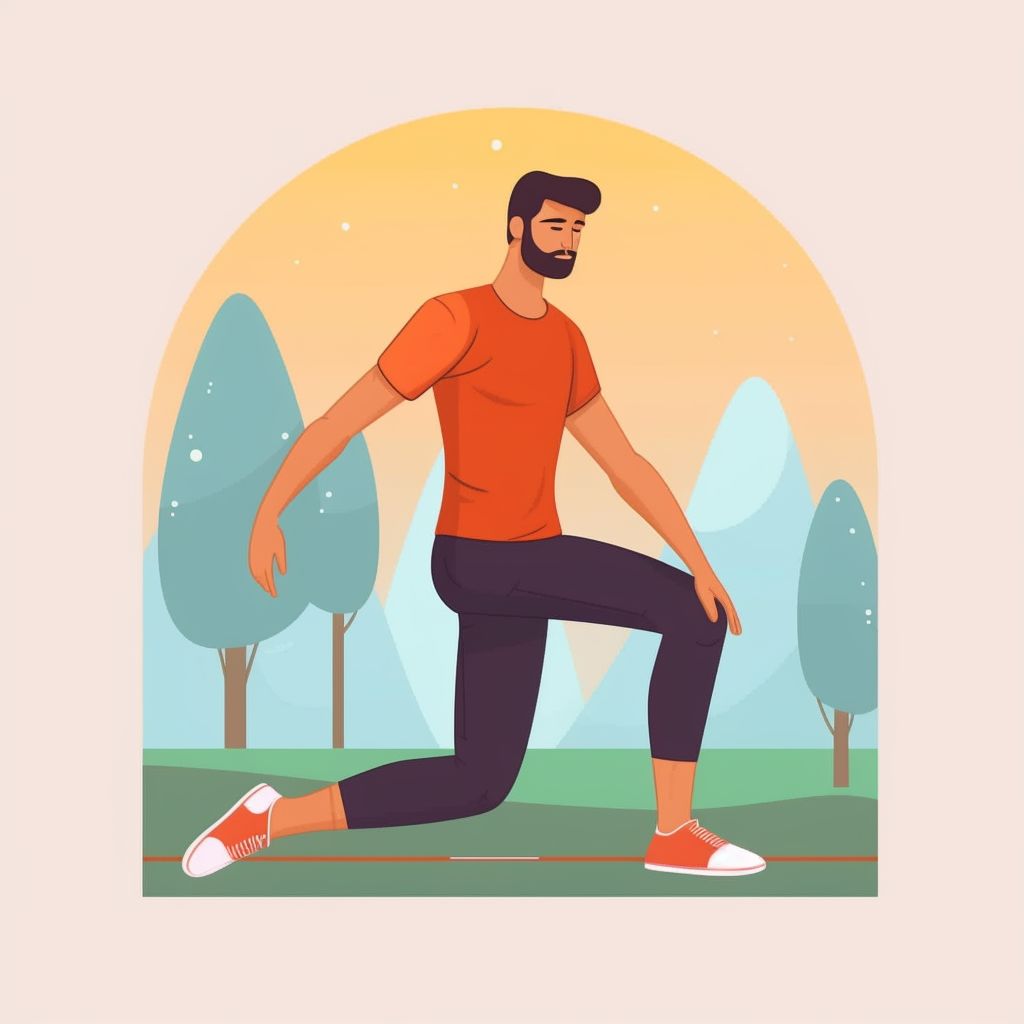
Professional Help and Therapy Options
Seeking professional help is often the first and most crucial step in managing BDD. Cognitive-behavioral therapy (CBT) has shown remarkable success in treating BDD. A study published in JAMA Psychiatry found that CBT significantly reduced BDD symptoms and improved overall well-being. Therapists can assist individuals in challenging negative thought patterns and behaviors related to their appearance.
Self-Help Techniques and Self-Care Practices
In addition to therapy, there are self-help techniques and self-care practices that can complement the recovery journey:
- Mindfulness and Meditation: Mindfulness practices can help individuals become more aware of their thoughts and feelings without judgment. Research in the Journal of Anxiety, Stress & Coping suggests that mindfulness can reduce body dissatisfaction.
- Journaling: Keeping a journal to track thoughts and feelings related to BDD can be enlightening. It can help identify triggers and patterns and provide a sense of control.
- Physical Activity: Engaging in regular physical activity can boost self-esteem and mental well-being. Exercise has been linked to improvements in body image perception.
The Role of Support Networks in Recovery
Support networks play a crucial role in the recovery process:
- Friends: Sharing your struggles with close friends can provide emotional support and understanding. Friends can help you challenge negative thoughts and build self-esteem.
- Family: Involving family members can foster empathy and create a more supportive home environment. Family support can be a powerful motivator in seeking treatment.
- Partners: If you’re in a relationship, open communication with your partner is vital. Discuss your needs and challenges, and encourage them to learn about BDD. A supportive partner can be an invaluable source of encouragement and comfort.
Remember that coping with BDD is a journey, and progress may be gradual. Combining professional help with self-help techniques and relying on your support network can greatly improve your ability to manage BDD and foster healthier relationships.
HealWiser’s Last Piece of Advice
Body Dysmorphic Disorder (BDD) casts a shadow over relationships, affecting not only individuals but those who care for them. Our exploration into the impact of BDD on relationships reveals the profound challenges it presents, from communication barriers to trust issues and strains on intimacy.
Awareness and support are our allies in this journey. Understanding the complexities of BDD and relationships can help us empathize, communicate, and provide the necessary support to our loved ones.
Remember, seeking professional help is a critical step on the path to recovery. With therapy, self-care, and the unwavering support of our networks, individuals with BDD can foster healthier relationships and embark on a road to self-acceptance and well-being.
Recovery is possible, and with understanding and support, we can all play a part in helping those with BDD find the light at the end of the tunnel.
Sharing your experiences can provide valuable insights and emotional support. So…
…share your story with Heal Wiser and others in the comments section below this post.





